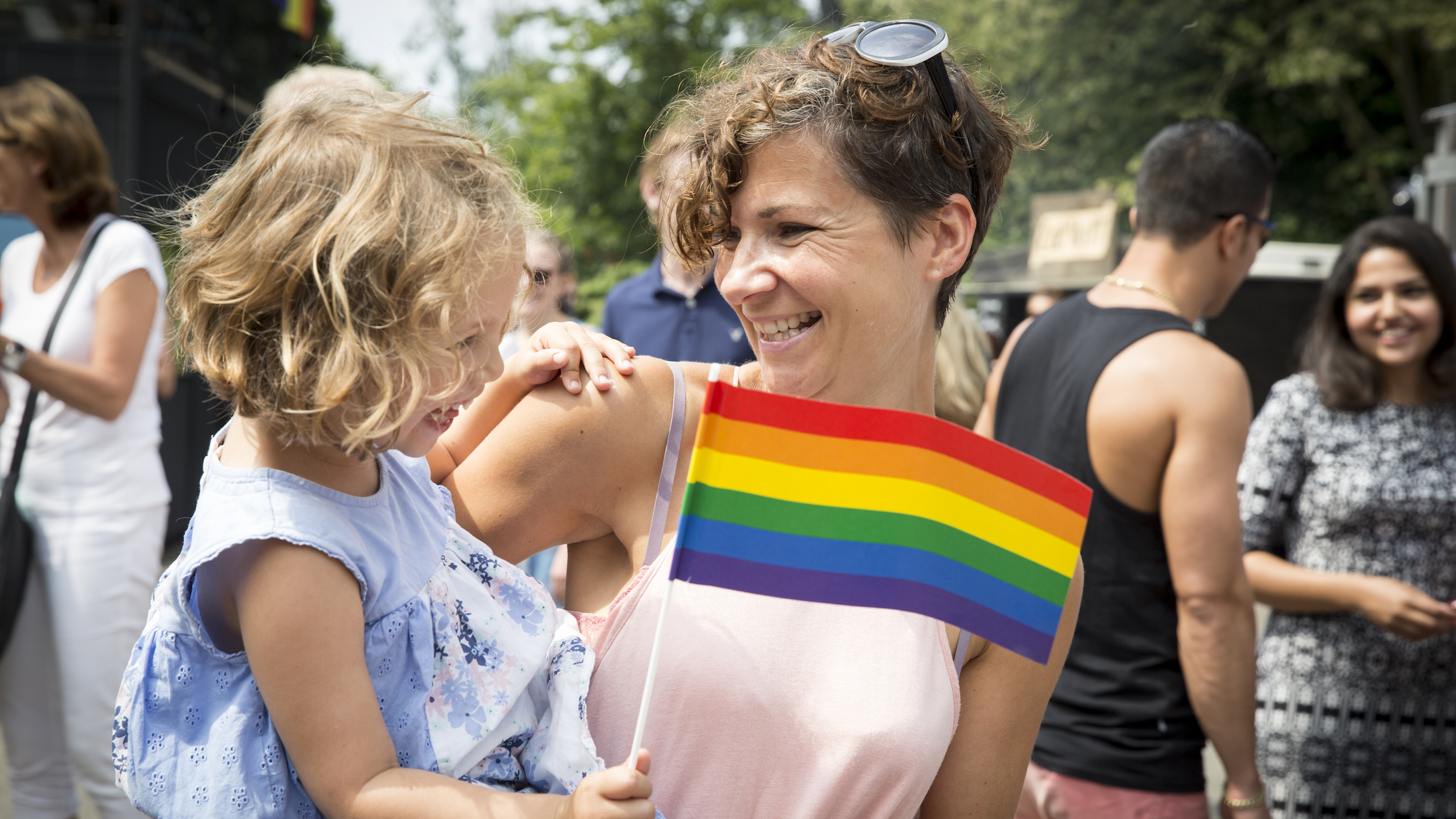
This Pride Month we want to make sure parents know that supporting their LGBTQ+ children is literally a matter of life or death. According to the Trans Pulse Project, a 2012 report found that when parents were supportive of their child's gender expression and identity, there was a 93% reduction in reported suicide attempts. That's why it's so important that love and kindness are at the root of all our actions when dealing with a child coming out as something like gay or transgender or even just questioning.
My own parents tried to be as supportive as they could be when I came out as bisexual as a teenager, but they weren't totally sure how to navigate the situation. They didn't have experience with the subject and couldn't necessarily relate. But parents don't have to understand to be understanding. For all the well meaning parents out there who feel a little lost on this subject, we've compiled 17 ways they can support their LGBTQ+ kids through every stage of their identity exploration.
More from CafeMom: What 16 Young LGBTQIA+ Adults Wish Their Parents Had Known & Done Differently
Careful What We Say
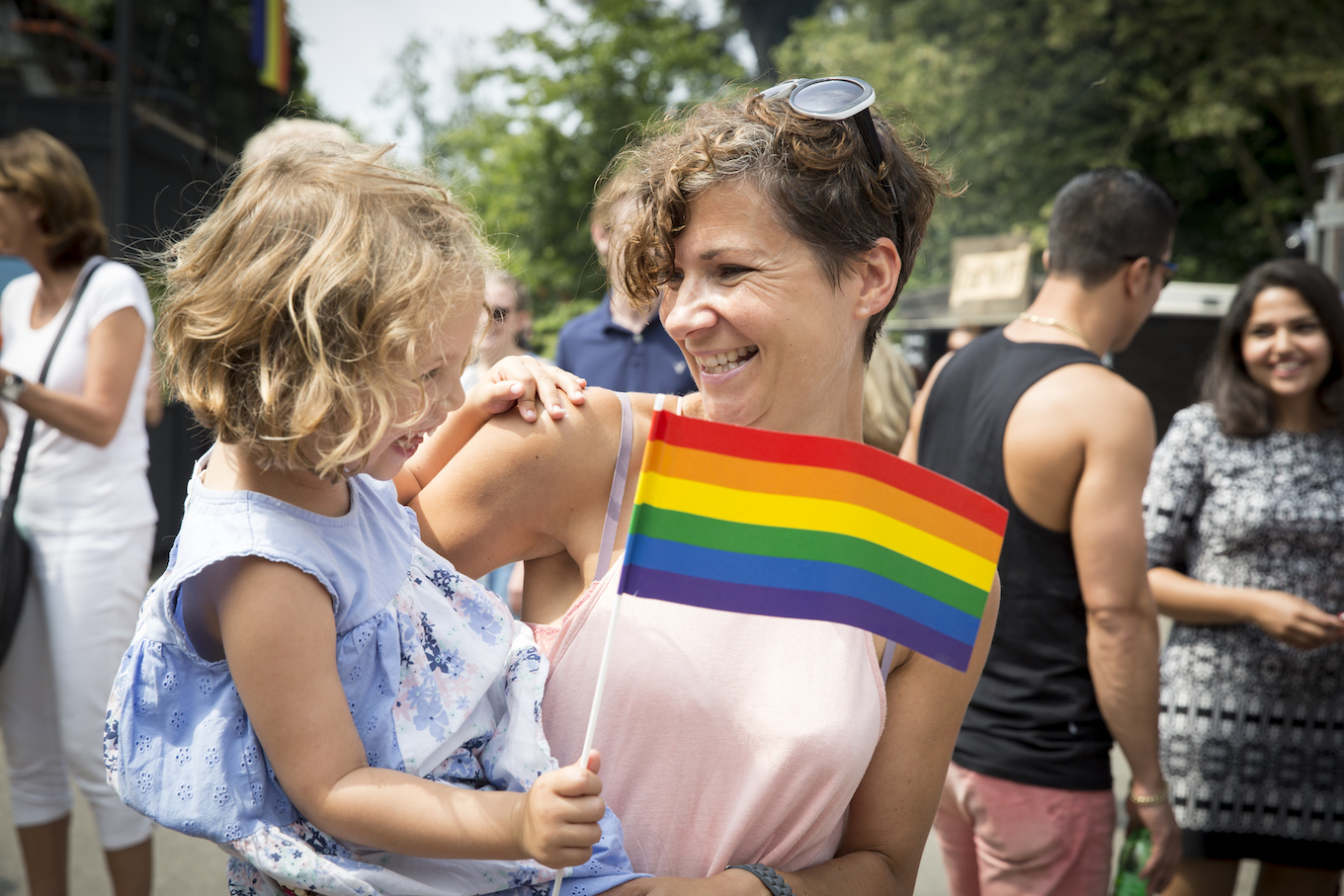
Children are very attentive to what we say, and if we speak badly about a person or community, they'll pick up on that. One of the best ways a parent can show their child that they can provide a loving, safe space is by not talking down on the LGBTQ+ community or using derogatory phrases.
Additionally, if someone in public is dressing in a gender nonconforming way, don't make negative comments or make a scene by pointing at them. We can also use gender inclusive language and try to avoid stereotyping things as being for one gender or another.
Watch Inclusive Media

It's easy to stay in a bubble and only watch movies or TV shows or listen to music that exists within a race or class or sexuality that we belong to. But we should be consuming a variety of content about people from all kinds of backgrounds. There are some great LGBTQ+ kids' TV shows and movies for families to watch together to better expand everyone's understanding.
Don't Force Them to Come Out

If a parent suspects that their child may be questioning their gender or sexuality, they shouldn't necessarily say that to the kid. Targeted questions like, "Are you gay" or accusations like, "I think you're gay," may make a child feel uncomfortable. "Let your child come to terms with it first and then come out. They need space to work things out," LGBTQ+ parental coach Susan Berland told Psychology Today.
If we structure our homes to be safe spaces for identity exploration and honesty, chances are the child will open up to us when they're ready.
More from CafeMom: What Parents of LGBTQ Kids Need To Know About Suicide Prevention
Believe Them
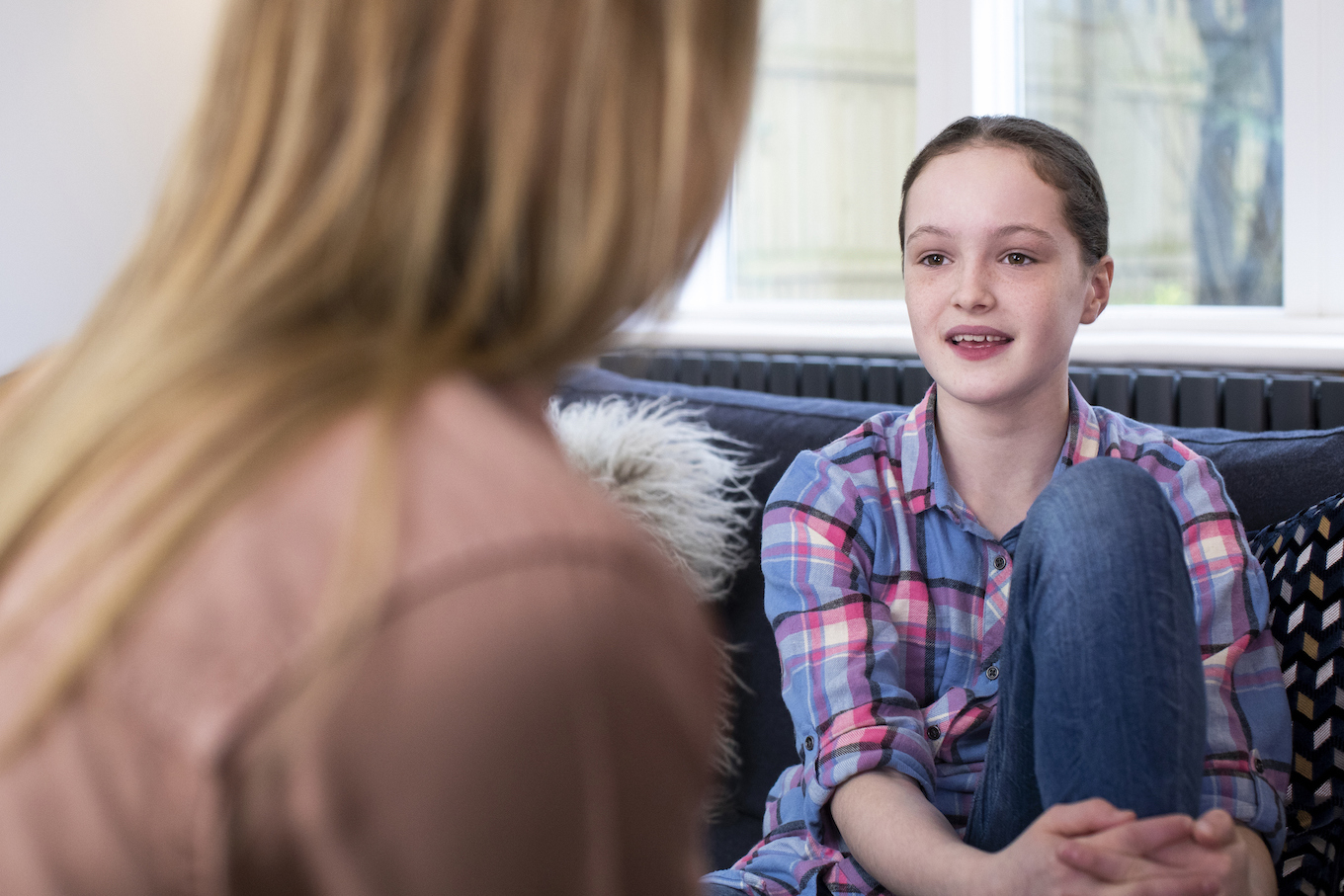
If a child eventually does open up to a parent about their identity, it's important to listen to them and meet them where they're at. Some parents think that their child is just going through a phase, but being dismissive could make a child unwilling to talk about such topics in the future.
And instead of asking questions like, "How do you know?" which could come across accusatory, we could simply ask them how they're feeling about this realization. Or, instead of asking questions at all, we could thank them for trusting us with this conversation and tell them we love them for who they are.
Respect Pronouns or Name Changes

In the event that a child wishes to go by different pronouns or even by a different name, it's important that we honor that. Of course it's natural to have slip ups, but just apologize and re-commit to using the right terms.
Also, it's understandable that parents may feel upset at a child seemingly rejecting the birth name we so carefully chose for them, but this change is not a rejection of us. It's simply them working to feel more comfortable in their skin.
According to a study published in the Journal of Adolescent Health in 2018, research found that when a child's chosen name was used it was linked to lower rates of depression or suicidal ideation.
Be an Advocate

One of the best ways to support our children is by being an advocate. We need to stand up for them in settings where they may be disrespected and not have the power to speak up for themselves. Perhaps this means speaking to a teacher about using the child's personal gender pronouns or name. Maybe it even means standing up to family members who may not be as supportive.
Forcing a child to spend time with relatives who diminish their identity is not a good idea. This might mean some difficult conversations and boundaries, but our children are worth it. If they know we have their back, it'll mean so much.
Open Conversations

We might have a lot of questions for our child who is exploring their identity, but rather than barraging them, we can simply let them know the door is open to communicate if they want to.
Johns Hopkins Medicine published an article recommending that parents simply stay involved in all aspects of their children's lives. Ask them about school or their friends, and don't make every question about their LGBTQ+ identity. Or use TV show or movie characters to broach more serious subjects. Sometimes a child may feel more comfortable opening up about something they read or watched because it's not directly about them.
Keeping an open dialogue about all parts of a kid's life helps them want to be more open in return.
Respect Their Privacy

Once a child has entrusted a parent, it's important to keep that trust. Don't share their identity journey with anybody else — relatives, teachers, friends, etc. If the child wants to tell these people, they can. But it's not up to us to share that information before they're ready.
Don't Make it Personal

Our kids coming out as gay or nonbinary or transgender, etc. is not a reflection of anything we've done as parents. We don't get to make this about us. And we especially don't get to worry about things like whether this means our child will get married, have grandchildren, etc. This is their journey, and we get to be allies, but not make it any more about us than that.
Don't Overthink
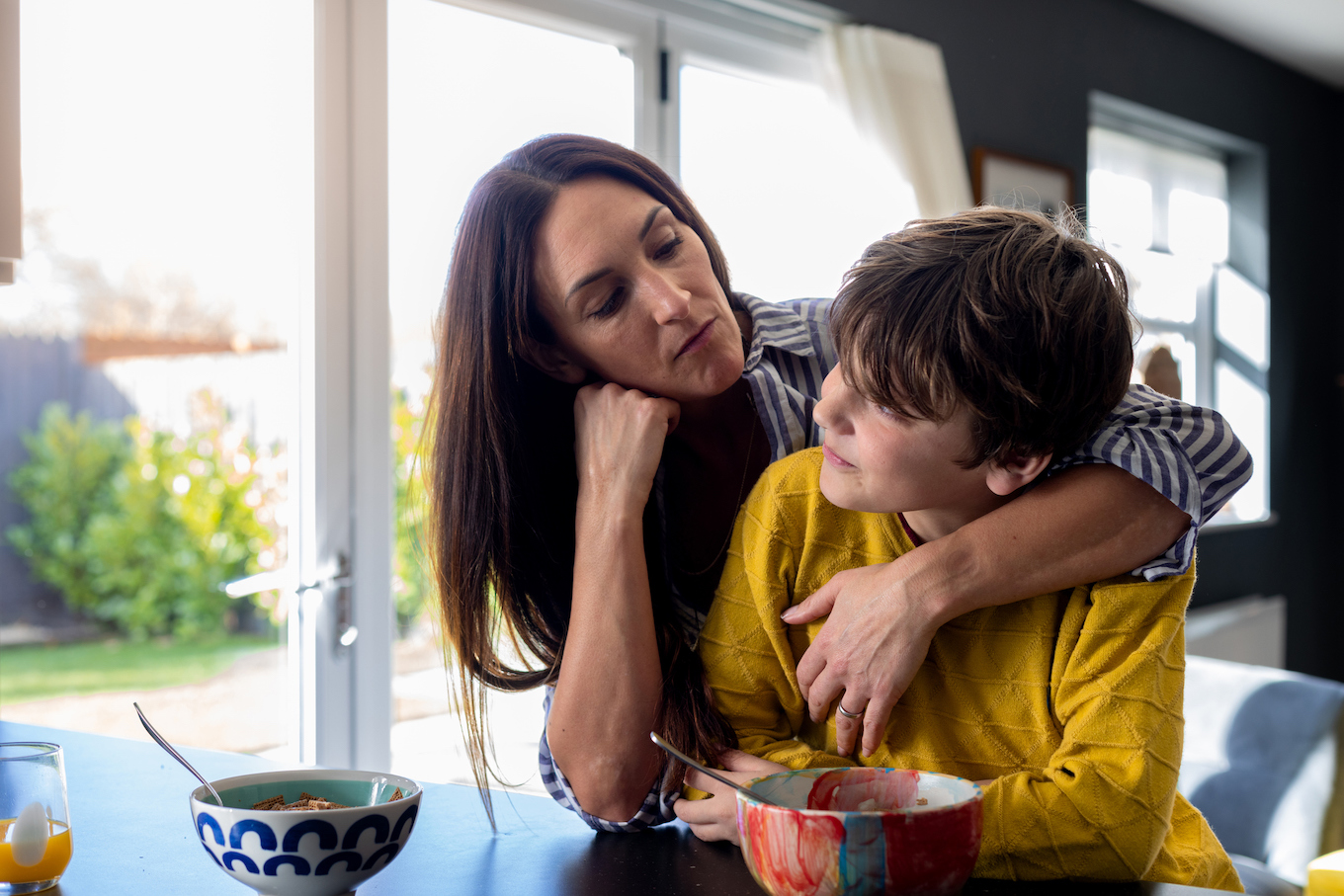
It's easy to let our minds run when a child tells us something major about themselves. It's natural to wonder or worry how their life maybe different than our own. But try not to project too many thoughts or fears about the future onto the child. There's plenty of time for them to discover how their future will shape up, right now they just need love and support.
The Sex Talk

For those of us with teenagers who are part of the LGBTQ+ community it's just as important to have sex talks with them as it is with any straight and cisgender child. We need to do our research on sites like The Trevor Project and present our kids with all the best information to protect themselves.
Additionally, even if a child hasn't necessarily come out, it's worth talking about LGBTQ+ sexual health with them in case they ever decide to explore that. Don't assume they're straight and will only be having straight sex.
Understand Things Could Change
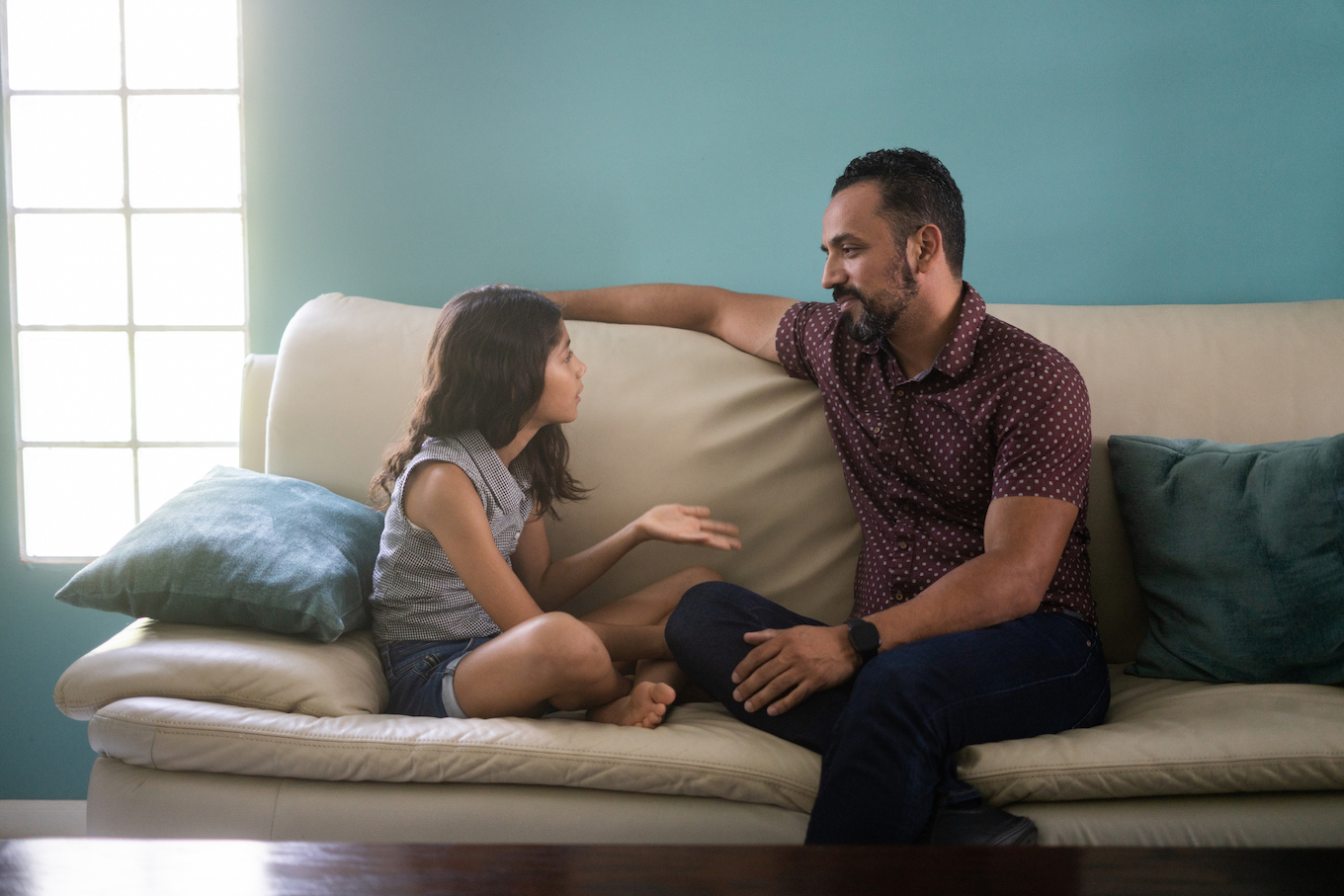
Gender and sexuality exploration is a journey for many people. What a child identifies as today may change in the future. That doesn't mean they're going through a phase, it just means that they're figuring themselves out and we can support them at every stage.
"There's really no harm in ever affirming or loving our kids when they share with us who they are," Dr. Kade Goepferd of Children’s Minnesota told CNN. "The harm really can only come if we refuse to listen or acknowledge the truth that they're sharing with us and how vulnerable they're being."
Some people come out as gay or lesbian and later redefine themselves as something else like bisexual or pansexual or vice versa. Some people explore identifying as nonbinary but later transition and change their pronouns. Whatever happens, it's important that we never say, "I told you so" if a child changes their identity definitions. We're all just figuring life out as we go.
Save Emotions for Other Adults

If a parent does find themselves dealing with a lot of emotions related to their child's identity, they shouldn't necessarily express that to the child. Speak to a friend or a therapist or a support group to work through those feelings. Our children have enough to deal with without navigating our own emotions.
Don't Act Differently

According to Assembly, a common fear for children coming out to their parents is that they might get treated differently afterwards. And "differently" can mean a variety of things.
Being too supportive like displaying a rainbow bumper sticker or constantly talking about gay celebrities can make a child feel uncomfortable. On the flip side, if a parent goes from usually chatty to really quiet around a child, that can be strange as well.
Nothing about the child has changed. They are always who they were, it's just now we know about it.
Let the Child Lead

It's normal for parents to be a little unsure of how to progress once learning their child is part of the LGBTQ+ community. That's why it's a great idea to follow the child's lead. If they want to talk a lot about being gay, we can listen and make room for those conversations. If they express interest in visiting a Pride event, we can take them.
But we should be careful not to force any of our own stereotypes or ideals on them. Kids very often know what they want and this is an instance where following and learning from them is imperative.
Join PFLAG

PFLAG (which stands for Parents, Families, and Friends of Lesbians and Gays) has so many great resources, advice, and stories for parents navigating this subject. It's a great first step when learning how to best support our children and advocate for equality. We don't have to go through this alone.
Love Them

One of the best things a parent can do for their LGBTQ+ child is just love them exactly as they are. We should never say that we love them "anyway," as if their identity is an issue. But we should offer love, support, and kindness. It's not an easy road for many LGBTQ+ kids, but we can give them the safe and loving space they may not always be able to find in the real world. It's the least that we can do.




